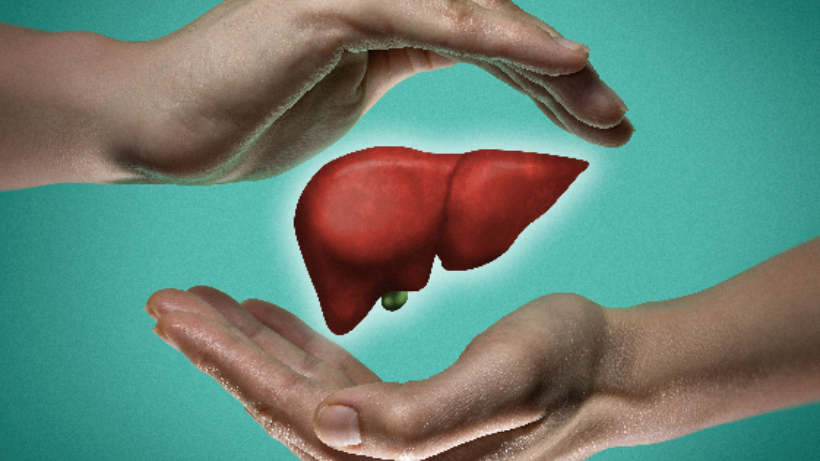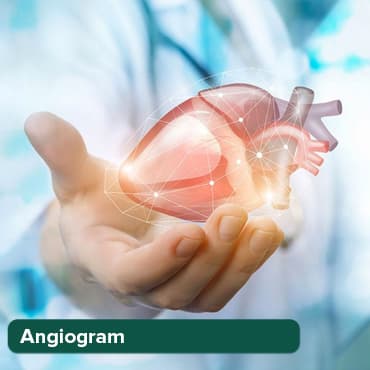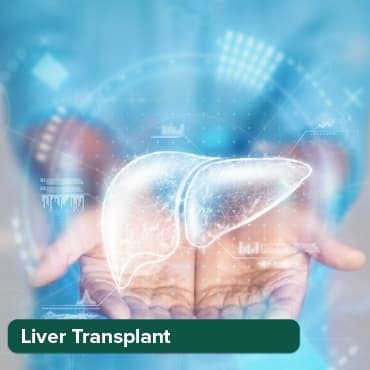
Liver Transplant Surgery - All You Need To Know
09 Jun, 2022
 Healthtrip Team
Healthtrip TeamOverview
The liver is our body's largest internal organ, and it aids in metabolism, or the breakdown of all nutrients from meals, as well as the synthesis of some blood-clotting proteins. In rare situations, when the healthy liver fails to function fully, if you have liver cancer, or if you have multiple health concerns related to end-stage chronic liver disease – which progresses over months and years – you may require a liver transplant. Here we have discussed the complete liver transplant procedure in detail. Keep on reading to know the same.
What are the types of liver transplant surgery?
- Living donor- in this procedure, the diseased and damaged liver is removed and replaced with a portion of a healthy liver from a living donor. This is feasible because our bodies can survive and operate correctly even when only a piece of a liver is present.
The individual who has donated a portion of her or his liver might expect the liver to return its previous size and function normally shortly after surgery. A living donor is frequently a close cousin or family member.
Transform Your Beauty, Boost Your Confidence
Find the right cosmetic procedure for your needs.

We specialize in a wide range of cosmetic procedures

- Deceased donor- Your diseased liver is surgically removed and replaced by a healthy liver donated from a deceased donor.
Also, Read - Why Should You Go For Liver Transplant In India?
Precautions you need to take before having liver transplant surgery?
Consult your surgeons about any questions you have about the procedure and clear any worries you have.
- Make sure your doctor is aware of all your medical history, both past, and present.
- You should also note whether you are prone to allergic reactions or if you use herbal supplements.
- If you are taking any medications, especially blood thinners like aspirin or NSAIDs like ibuprofen or naproxen, you should notify your doctor and cease or alter the dosage of those medications prior to surgery.
- If you are anemic, you should take iron supplements before undergoing surgery.
- Women taking the OCP (Oral Contraceptive Pill) should discontinue use at least one month before surgery.
- Following confirmation from test results and medical assessment that you are undergoing liver transplantation surgery, your surgeon or medical personnel will advise you and your family on the Dos and Don'ts prior to surgery.
Also, Read - How Much Does Liver Transplant Costs in India?
What can you expect during the surgery?
- Surgeons will take a part of the donor's liver for transplant through an incision in the stomach on the day of the operation.
- The precise section of the liver donated is determined by the size of the donor liver and the recipient's demands.
- Following that, surgeons remove the recipient's failing liver and implant the donated liver piece into the recipient's body. They connect the new liver to the blood vessels and bile ducts.
- The recipient's transplanted liver and the amount left behind in the donor recover quickly, attaining normal liver volume and function within a few months.
- People who receive a liver from a living donor have higher short-term survival percentages than those who receive a liver from a deceased donor.
Also, Read - Risks Involved in Liver Transplant
What can you expect after surgery?
Following your liver transplant, you should anticipate to:
- Stay in the intensive care unit for a few days if necessary. Doctors and nurses will keep an eye on your condition for symptoms of complications. They'll also monitor your liver function to see if your new liver is functioning properly.
- After surgery, you may have to spend between 5 and 10 days in the hospital. Once you're stable, you'll be transferred to a transplant recovery area to continue your rehabilitation.
- As you continue to recuperate at home, schedule regular checks. Your transplant team will create a schedule of checkups for you. Initially, blood tests may be performed several times each week, then less frequently over time.
- You will need to take drugs for the rest of your life. Following your liver transplant, you will be required to take a number of drugs.
Also, Read - Life Expectancy of a Liver Donor
Most popular procedures in India
Atrial septal defect
Upto 80% off
90% Rated
Satisfactory

Coronary Angiogram a
Upto 80% off
90% Rated
Satisfactory

Coronary Angiogram C
Upto 80% off
90% Rated
Satisfactory

Liver Transplant
Upto 80% off
90% Rated
Satisfactory

Total Hip Replacemen
Upto 80% off
90% Rated
Satisfactory

How can we help with the treatment?
If you're on the lookout for treatment in India, Thailand, Singapore, Malaysia, UAE, and Turkey, let Healthtrip be your compass. We will serve as your guide throughout your medical treatment. We'll be by your side, in person, even before your medical journey commences. The following will be provided to you:
- Connect with renowned doctors from a network spanning 35+ countries and access the world's largest health travel platform.
- Collaboration with 335+ top hospitals , including Fortis and Medanta.
- Comprehensive treatments from Neuro to Cardiac to Transplants, Aesthetics, and Wellness.
- Post-treatment care and assistance.
- Teleconsultations at $1/minute with leading surgeons.
- Trusted by 44,000+ patients for appointments, travel, visa, and forex assistance.
- Access top treatments and packages, such as Angiograms and many more.
- Gain insights from genuine patient experiences and testimonials.
- Stay updated with our medical blog.
- 24/7 unwavering support, from hospital formalities to travel arrangements or emergencies.
- Pre-scheduled specialist appointments.
- Prompt emergency assistance, ensuring safety.
Our success stories
Wellness Treatment
Give yourself the time to relax
Lowest Prices Guaranteed!

Lowest Prices Guaranteed!




